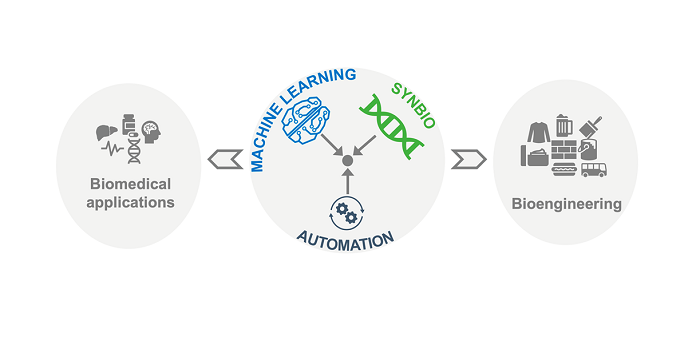In an opinion piece published July 19 in ACS Synthetic Biology, Hector Garcia Martin and Tijana Radivojevic of the Joint BioEnergy Institute collaborated with Pablo Carbonell of the Manchester Institute of Biotechnology’s SynBioChem Centre, to highlight the opportunities in a radical new approach to bioengineering that leverages the latest disruptive advances in machine learning.
The opinion piece entitled “Opportunities at the intersection of Synthetic Biology, Machine Learning, and Automation” puts forward a new approach to bioengineering that may significantly accelerate metabolic engineering for the creation of all types of bioproducts: from biofuels to biomaterials and medical drugs. According to the authors sustained investment in the intersection of the three domains and strong multidisciplinary collaboration are key to drive forward predictive biology and produce improved machine learning algorithms.
Machine learning methods make inferences from raw data using sophisticated algorithms and powerful computers. In order to be trained, machine learning techniques need large amounts of data. Yet challenges remain on how to acquire large-scale high-quality biological data. The authors see automation as the best way to produce the quantity and quality of data needed for effective machine learning. In the long run the intersection of synthetic biology, machine learning, and automation will helps us better design biological systems for a renewable bioeconomy, and it sets the base for a better understanding of biology in general.
Related Information:
New Machine Learning Approach Could Accelerate Bioengineering
